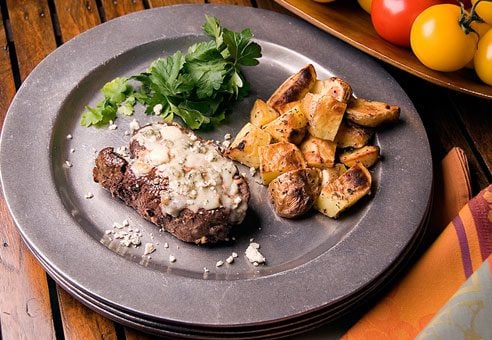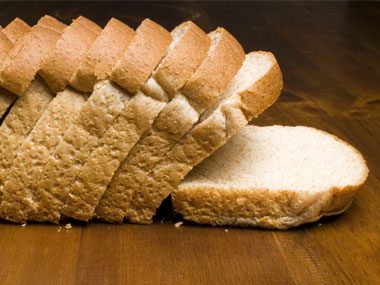Monday, July 20, 2015
Billionaires that gives away money: Tips to successfully date a millionaire online?
Billionaires that gives away money: Tips to successfully date a millionaire online?: How to successfully date a millionaire online? According to stats, there has been an increase of 50% in the number of millionaires world...
Sunday, July 19, 2015
Pope Francis may be a legendary critic of unfettered capitalism, but his September 26-27 visit has fueled a free-wheeling, money-making opportunity in the finest free market tradition.
New York (AFP) - For enterprising
dwellers in Philadelphia, the pope's maiden visit to the US means one
thing: mega bucks and listing their apartments on Airbnb for thousands
of dollars a night.
Pope Francis
may be a legendary critic of unfettered capitalism, but his September
26-27 visit has fueled a free-wheeling, money-making opportunity in the
finest free market tradition.
Debt-burdened
students and house-proud professionals are keen to cash in on the two
million Catholics expected to attend what has been dubbed one of the
biggest religious events held in the US.
Eric,
26, a student in medical school with dreams of becoming a neurosurgeon,
put his newly renovated, three-bedroom loft duplex on the website for a
cool $10,000 a night.
"It
seemed like a nice, easy way to make a chunk of change," he said,
touting $1,000 per person per night as the "going rate" for his area and
that his pad can easily sleep 10.
"Two blocks from convention center where Pope will be visiting," shrieks his advertisement in capitals.
Eric
and his two roommates have more than $500,000 in college debt between
them. Any pope windfall, he said, will go toward paying off loans."As it gets closer, if we don't get any bites with the laughable amount that we're charging, maybe we'll drop it a little bit," Eric said.
He plans to crash with friends, or possibly his girlfriend. It doesn't matter where.
View gallery

For enterprising dwellers in Philadelphia, the pope's maiden visit to the US means one thing: me …
But he is a tenant and, like other would-be hosts interviewed by AFP, did not want to give his last name for fear of being busted by landlords opposed to short-term sublets.
Airbnb says listings have increased tenfold and bookings nearly threefold in Philadelphia since this time last year.
- Willing to wait -
Drawing a wider net than two-bedroom apartments listed in the city center, Airbnb claimed the average price for booked and available listings for the weekend of the Pope's visit was $125.
But
Mark, 30, who works in the financial industry, is advertising his brand
new, three-bedroom home "just steps away" from the pope for $5,000 a
night for a minimum of two nights.
His
listing shows an airy home with designer furniture, polished hardwood
floors, a fully equipped kitchen and a stunning roof deck complete with
outdoor seating and fabulous views.
Mark said he listed the home two weeks ago and is hopeful of getting a deal.
"I
assume, because there are still cheaper alternatives out there, it will
take a little bit to get this property booked, but I'm willing to
wait," he said.
Meg Kane, a
spokeswoman for the World Meeting of Families, where the pope will
celebrate mass, said there are 11,500 hotel rooms in the city and 65,000
more within a 60-mile (100-kilometer) radius.
Rooms
are still available. Pilgrims can also stay with host families,
hostels, camping grounds and retreats, she said, declining to comment on
Airbnb specifically.
"We
live in a free-market economy and we can understand why some might want
to offer their homes for personal gain," said Kane, saying they had no
control over the rental fees.
Few hosts seem troubled by what the pope might make of turning a spiritual event into a business opportunity.
"I
think he would probably say, 'hey, you know what, we're all humans
here. You should help out your brother'," said Eric, who like Pope
Francis is from Argentina.
"But
it's also capitalism. I think, at its finest. And in that respect, if
there's somebody willing to pay it, then that's fine. That's what the
free market is
Saturday, July 18, 2015
Get support from any billionaire , They are ready to give away any amount of cash !
The
Giving Pledge is a commitment by the world's wealthiest individuals and
families to dedicate the majority of their wealth to philanthropy.
CURRENT PLEDGERS
Bill and Karen
Ackman
Ackman
Paul G.
Allen
Allen
Sue Ann
Arnall
Arnall
Laura and John
Arnold
Arnold
Lord Ashcroft KCMG PC
Nicolas
Berggruen
Berggruen
Manoj
Bhargava
Bhargava
Steve
Bing
Bing
Sara
Blakely
Blakely
Arthur M.
Blank
Blank
Michael R.
Bloomberg
Bloomberg
Richard and Joan
Branson
Branson
Eli and Edythe
Broad
Broad
Charles R.
Bronfman
Bronfman
Edgar M.
Bronfman
(d. 2013)
Bronfman
(d. 2013)
Warren
Buffett
Buffett
Jean and Steve
Case
Case
John
Caudwell
Caudwell
Lee and Toby
Cooperman
Cooperman
Joe
Craft
Craft
Joyce and Bill
Cummings
Cummings
Ray and Barbara
Dalio
Dalio
John Paul
DeJoria
DeJoria
Barry Diller and
Diane von Furstenberg
Diane von Furstenberg
Ann and John
Doerr
Doerr
Glenn and Eva
Dubin
Dubin
Larry
Ellison
Ellison
Judy
Faulkner
Faulkner
Charles F.
Feeney
Feeney
Andrew and Nicola
Forrest
Forrest
Ted
Forstmann
(d. 2011)
Forstmann
(d. 2011)
Phillip and Patricia
Frost
Frost
Bill and Melinda
Gates
Gates
Dan and Jennifer
Gilbert
Gilbert
Ann Gloag OBE
Dave Goldberg
(d. 2015)
and Sheryl Sandberg
(d. 2015)
and Sheryl Sandberg
David and Barbara
Green
Green
Jeff and Mei Sze
Greene
Greene
Harold Grinspoon and Diane Troderman
Gordon and Llura
Gund
Gund
Harold
Hamm
Hamm
Reed Hastings and
Patty Quillin
Patty Quillin
Lyda
Hill
Hill
Barron
Hilton
Hilton
Christopher
Hohn
Hohn
Elie and Susy
Horn
Horn
Jon and Karen
Huntsman
Huntsman
Dr Mo
Ibrahim
Ibrahim
Carl
Icahn
Icahn
Joan and Irwin
Jacobs
Jacobs
John W. Jordan II "Jay"
George B.
Kaiser
Kaiser
Brad and Kim
Keywell
Keywell
Vinod and Neeru
Khosla
Khosla
Sidney
Kimmel
Kimmel
Rich and Nancy
Kinder
Kinder
Beth and Seth
Klarman
Klarman
Elaine and Ken
Langone
Langone
Liz and Eric
Lefkofsky
Lefkofsky
Gerry and Marguerite
Lenfest
Lenfest
Peter B.
Lewis
(d. 2013)
Lewis
(d. 2013)
Lorry I.
Lokey
Lokey
George Lucas and Mellody Hobson
Duncan and Nancy
MacMillan
MacMillan
Alfred E.
Mann
Mann
Joe and Rika
Mansueto
Mansueto
Bernie and Billi
Marcus
Marcus
Richard Edwin and Nancy Peery Marriott
Strive and Tsitsi
Masiyiwa
Masiyiwa
Craig and Susan
McCaw
McCaw
Red and Charline
McCombs
McCombs
Michael and Lori
Milken
Milken
Yuri
Milner
Milner
George P.
Mitchell
(d. 2013)
Mitchell
(d. 2013)
Thomas S.
Monaghan
Monaghan
Gordon and Betty
Moore
Moore
Tashia and John
Morgridge
Morgridge
Michael Moritz and
Harriet Heyman
Harriet Heyman
Dustin Moskovitz and
Cari Tuna
Cari Tuna
Patrice and Precious
Motsepe
Motsepe
Elon
Musk
Musk
Arif
Naqvi
Naqvi
Jonathan M.
Nelson
Nelson
Pierre and Pam
Omidyar
Omidyar
Natalie and Paul
Orfalea
Orfalea
Bernard and Barbro
Osher
Osher
Bob and Renee
Parsons
Parsons
Ronald O.
Perelman
Perelman
Jorge M. and
Darlene Perez
Darlene Perez
Peter G.
Peterson
Peterson
T. Boone
Pickens
Pickens
Victor
Pinchuk
Pinchuk
Hasso
Plattner
Plattner
Vladimir Potanin
Azim
Premji
Premji
Julian H.
Robertson, Jr.
Robertson, Jr.
David
Rockefeller
Rockefeller
Edward W. and
Deedie Potter Rose
Deedie Potter Rose
Stephen M.
Ross
Ross
David M.
Rubenstein
Rubenstein
David
Sainsbury
Sainsbury
John and Ginger
Sall
Sall
Henry and Susan
Samueli


Samueli

Herb and Marion
(d. 2012) Sandler
(d. 2012) Sandler
Denny
Sanford
Sanford
Vicki and Roger
Sant
Sant
Lynn
Schusterman
Schusterman
Ruth and Bill
Scott
Scott
Walter
Scott, Jr.
Scott, Jr.
Tom and Cindy
Secunda
Secunda
Craig Silverstein and Mary Obelnicki
Annette and
Harold
(d. 2013)
Simmons
Harold
(d. 2013)
Simmons
Jim and Marilyn
Simons
Simons
Paul E.
Singer
Singer
Jeff
Skoll
Skoll
John A. and Susan Sobrato, John Michael Sobrato
Michele and Patrick
Soon-Shiong
Soon-Shiong
Ted and Vada (d. 2013)
Stanley
Stanley
Mark and Mary
Stevens
Stevens
Tom Steyer and
Kat Taylor
Kat Taylor
Jim (d. 2014) and Virginia Stowers
Dato' Sri DR Tahir
Vincent Tan Chee Yioun
Tad
Taube
Taube
Claire
(d. 2014) and
Leonard Tow
(d. 2014) and
Leonard Tow
Ted
Turner
Turner
Albert Lee
Ueltschi
(d. 2012)
Ueltschi
(d. 2012)
Hamdi
Ulukaya
Ulukaya
Sunny and Sherly
Varkey
Varkey
Dr. Romesh and
Kathleen Wadhwani
Kathleen Wadhwani
Sanford and Joan
Weill
Weill
Shelby
White
White
Sir Ian
Wood
Wood
Hansjörg Wyss
Samuel
Yin
Yin
Charles Zegar and Merryl Snow Zegar
MarkZuckerberg
Things You Should Know :- Diabetics lives Long.
The Emotional Side of Diabetes - Part 1: Things You Should Know: A series from the Behavioral Diabetes Institute
Part 1 of our series from the Behavioral Diabetes Institute
By William Polonsky, Ph.D., C.D.E
Living
well with diabetes takes emotional strength. Why? Because this is a
tough disease. Diabetes is more than just a simple matter of eating
right and taking your medications. Staying strong emotionally is key to
keeping stress and your blood glucose levels where they belong.
Unfortunately, people with diabetes—as well as doctors—often neglect
these “real life” aspects of the disease.How can you manage diabetes while also giving proper attention to your own thoughts and feelings? Here are important things you need to know about the emotional features of diabetes. In this article, we focus on the personal side of diabetes.
- Harnessing your fears.
With good care, you can live a long, healthy life with diabetes. Many people think they are doomed to suffer terrible complications, but this is simply not true!
- Diabetes is a serious disease and some people do develop severe long-term complications, but many of these problems are preventable if you have good medical care and take good care of yourself.
- Feeling a little frightened is not necessarily a bad thing, but when your fears get so big that you feel helpless and hopeless, it’s time to take action. You need to harness fear to help you manage your diabetes.
- Solutions:
- Fight fear with knowledge. Learn about the powerful benefits of good diabetes care by talking to your doctor or enrolling in a diabetes education program.
- Ask your doctor about what your real odds for developing complications might be, and what you can do to improve those odds.
- Subscribe to any of the popular diabetes magazines to keep informed about how to avoid or slow complications.
- If you are anxious about hypoglycemia, talk to your doctor about medication changes that can help. Fear of hypoglycemia is about losing confidence in your body, worrying a serious reaction could happen at any moment. It can lead to high blood sugars, eating problems and an overly restrictive lifestyle. With treatment, these problems can be completely resolved.
- Remember that your own self-care actions can make a big difference to your health. You are not helpless! After all, it’s not diabetes itself that typically causes serious problems, it’s poorly-controlled diabetes. With good care, you can live a long and healthy life.
- Overcoming depression
 Depression is a serious problem, and it can be even more serious when you have diabetes.People
with diabetes are more likely to develop depression than other people.
If you are depressed, diabetes can become a lot harder to handle and
your blood sugars are likely to rise. And when your diabetes is out of
control, this can make it even harder to escape depression. It becomes a
vicious circle.
Depression is a serious problem, and it can be even more serious when you have diabetes.People
with diabetes are more likely to develop depression than other people.
If you are depressed, diabetes can become a lot harder to handle and
your blood sugars are likely to rise. And when your diabetes is out of
control, this can make it even harder to escape depression. It becomes a
vicious circle.
Solutions:
A few last words
Diabetes can be tough, but you can live well with it. You can succeed with diabetes through knowledge, good medical care and emotional strength.
This
article originally appeared in the pamphlet, "The Emotional Side of
Diabetes: 10 Things You Should Know About Behavioral Diabetes,” from the
Behavioral Diabetes Institute (BDI), and is reprinted here with
permission. BDI is a nonprofit 501(c)3 organization dedicated to helping
people with diabetes live long and healthy lives. Find out more at www.behavioraldiabetes.org.
- Watch for the warning signs of depression. If you are feeling down or hopeless about life, have lost your “get up and go,” or are feeling reduced interest or pleasure from the things you used to enjoy, talk to your doctor as soon as possible.
- Take action to avoid depression. Make sure to get a good night’s sleep as often as possible, stay active and spend time with friends each day. Include activities in your daily life that are personally rewarding and meaningful, like taking an interesting class or volunteering at a local museum. All of these can be powerful anti-depressants.
- If you are depressed, don’t just wait around and hope it will go away. There are several good medications and different forms of counseling that have proven to help people recover from depression. Speak with your doctor about getting the help you need.
- Defeating denial
Denial can be a valuable tool. It can be a good way to cope with negative feelings about diabetes, especially when you are first diagnosed or when the disease is feeling out of control.
- But denial becomes a problem when it is your only way of coping. Instead of a temporary tool, it becomes a permanent way of life. The response to all diabetes aggravations becomes “I will not think about diabetes anymore.” This means trouble. When you turn your back on diabetes, your long-term health is endangered.
- Solutions:
- Learn the facts about diabetes by attending a diabetes education class or support group in your area. You need to know that:
a) Diabetes is a serious disease that can harm you when it is not adequately controlled, even if you feel fine.
b) Ignoring diabetes is likely to cause more serious health problems.
c) Paying attention to diabetes can help you to live a longer, healthier life. - Stay informed about your own health status. See your doctor regularly and complete all of the recommended medical tests (such as A1C, blood pressure and cholesterol). Know the results of these tests and what they mean. When you are well informed, you feel more able to manage diabetes and keep it under control.
- Don’t do diabetes alone. Share your thoughts and feelings about diabetes with a friend. Confiding in someone you trust can help you to gain the support and perspective necessary for making sense out of your own emotions and attitudes.
- Giving up the guilt
You are not a bad person because you developed diabetes. It is not your fault. You are not “bad” because you didn’t exercise today or because you ate the wrong thing last night. Nobody can manage diabetes perfectly. Guilt is common when you are living with diabetes, and it is hardly ever useful.
- Because of guilt, people often establish tough, sometimes impossible rules about how to manage diabetes (“I must NEVER eat even a bite of junk food ever again”). Since you can never be perfect, rules like these can make you feel like you are failing and can promote depression. Enough already!
- Solutions:
- Remember that you didn’t give yourself diabetes. As Americans grow heavier and heavier, it may seem as though everyone is trying hard to develop Type 2 diabetes. Yet most “fail” to do so. Obesity and a sedentary lifestyle are contributors to Type 2 diabetes, but if you don’t have the genes for it, you can’t develop it. For Type 1 diabetes, your own actions played no role at all. It wasn’t all those sweets you ate as a child, or anything else you did.
- With your doctor’s help, make sure your diabetes expectations are achievable. Stop beating yourself up every time you eat the wrong food, forget to exercise or skip a blood glucose test. Perfection isn’t required, though you do want to reach metabolic goals that can keep you healthy. Develop a reasonable behavioral plan that can help you achieve those goals, then relax!
- Get perspective. Instead of criticizing yourself for the occasional lapse, give yourself credit for all of your positive efforts to manage diabetes. Everyone needs a pat on the back, and you probably deserve one.
Tips to Lose Weight: 40 Fast, Easy Tips.
How to Lose Weight: 40 Fast, Easy Tips
You know the drill when it comes to losing weight: take
in fewer calories, burn more calories. But you also know that most diets
and quick weight-loss plans don't work as promised. If you're trying to
drop a few pounds fast, these expert tips will make it easy for you to
lose the weight quickly.
From Stealth Health (Reader's Digest Association Books)
1. Write down what you eat for one week and you will lose weight. Studies found that people who keep food diaries wind up eating about 15 percent less food than those who don’t. Watch out for weekends: A University of North Carolina study found people tend to consume an extra 115 calories per weekend day, primarily from alcohol and fat. Then cut out or down calories from spreads, dressings, sauces, condiments, drinks, and snacks; they could make the difference between weight gain and loss.
ADVERTISING
3. Get an online weight loss buddy to lose more weight. A University of Vermont study found that online weight-loss buddies help you keep the weight off. The researchers followed volunteers for 18 months. Those assigned to an Internet-based weight maintenance program sustained their weight loss better than those who met face-to-face in a support group.
4. Get a mantra. You’ve heard of a self-fulfilling prophecy? If you keep focusing on things you can’t do, like resisting junk food or getting out the door for a daily walk, chances are you won’t do them. Instead (whether you believe it or not) repeat positive thoughts to yourself. “I can lose weight.” “I will get out for my walk today.” “I know I can resist the pastry cart after dinner.” Repeat these phrases and before too long, they will become true for you.
 5. After breakfast, stick to water.
At breakfast, go ahead and drink orange juice. But throughout the rest
of the day, focus on water instead of juice or soda. The average
American consumes an extra 245 calories a day from soft drinks. That’s
nearly 90,000 calories a year—or 25 pounds! And research shows that
despite the calories, sugary drinks don’t trigger a sense of fullness
the way that food does.
5. After breakfast, stick to water.
At breakfast, go ahead and drink orange juice. But throughout the rest
of the day, focus on water instead of juice or soda. The average
American consumes an extra 245 calories a day from soft drinks. That’s
nearly 90,000 calories a year—or 25 pounds! And research shows that
despite the calories, sugary drinks don’t trigger a sense of fullness
the way that food does.6. Eat three fewer bites of your meal, one less treat a day, or one less glass of orange juice. Doing any of these can save you about 100 calories a day, and that alone is enough to prevent you from gaining the two pounds most people mindlessly pack on each year.
7. Watch one less hour of TV. A study of 76 undergraduate students found the more they watched television, the more often they ate and the more they ate overall. Sacrifice one program (there’s probably one you don’t really want to watch anyway) and go for a walk instead.
8. Wash something thoroughly once a week. Whether that’s a floor, a couple of windows, the shower stall, bathroom tile, or your car, a 150-pound person will burn about four calories for every minute spent cleaning. Scrub for 30 minutes and you could work off approximately 120 calories, the same number in a half-cup of vanilla frozen yogurt.
9. Wait until your stomach rumbles before you reach for food. It’s stunning how often we eat out of boredom, nervousness, habit, or frustration—so often, in fact, that many of us have actually forgotten what physical hunger feels like. If you’re hankering for a specific food, it’s probably a craving, not hunger. If you’d eat anything you could get your hands on, chances are you’re truly hungry. Find ways other than eating to express love, tame stress, and relieve boredom.
 10. Sniff a banana, an apple, or a peppermint when you feel hungry.
You might feel silly, but it works. When Alan R. Hirsch, M.D.,
neurological director of the Smell & Taste Treatment and Research
Foundation in Chicago, tried this with 3,000 volunteers, he found that
the more frequently people sniffed, the less hungry they were and the
more weight they lost—an average of 30 pounds each. One theory is that
sniffing the food tricks the brain into thinking you’re actually eating
it.
10. Sniff a banana, an apple, or a peppermint when you feel hungry.
You might feel silly, but it works. When Alan R. Hirsch, M.D.,
neurological director of the Smell & Taste Treatment and Research
Foundation in Chicago, tried this with 3,000 volunteers, he found that
the more frequently people sniffed, the less hungry they were and the
more weight they lost—an average of 30 pounds each. One theory is that
sniffing the food tricks the brain into thinking you’re actually eating
it.11. Stare at the color blue. There’s a good reason you won’t see many fast-food restaurants decorated in blue: it functions as an appetite suppressant. So serve up dinner on blue plates, dress in blue while you eat, and cover your table with a blue tablecloth. Conversely, avoid red, yellow, and orange in your dining areas. Studies find they encourage eating.
12. Eat in front of mirrors and you’ll lose weight. One study found that eating in front of mirrors slashed the amount people ate by nearly one-third. Having to look yourself in the eye reflects back some of your own inner standards and goals, and reminds you of why you’re trying to lose weight in the first place.
13. Spend 10 minutes a day walking up and down stairs. The Centers for Disease Control says that’s all it takes to help you shed as much as 10 pounds a year (assuming you don’t start eating more).
14. Walk five minutes for at least every two hours. Stuck at a desk all day? A brisk five-minute walk every two hours will parlay into an extra 20-minute walk by the end of the day. And getting a break will make you less likely to reach for snacks out of antsiness.
15. You’ll lose weight and fat if you walk 45 minutes a day, not 30. The reason we’re suggesting 45 minutes instead of the typical 30 is that a Duke University study found that while 30 minutes of daily walking is enough to prevent weight gain in most relatively sedentary people, exercise beyond 30 minutes results in weight and fat loss. Burning an additional 300 calories a day with three miles of brisk walking (45 minutes should do it) could help you lose 30 pounds in a year without even changing how much you’re eating.
 16. Don’t buy any prepared food
that lists sugar, fructose, or corn syrup among the first four
ingredients on the label. You should be able to find a lower-sugar
version of the same type of food. If you can’t, grab a piece of fruit
instead! Look for sugar-free varieties of foods such as ketchup,
mayonnaise, and salad dressing. Also, avoid partially hydrogenated
foods, and look for more than two grams of fiber per 100 calories in all
grain products. Finally, a short ingredient list means fewer flavor
enhancers and empty calories.
16. Don’t buy any prepared food
that lists sugar, fructose, or corn syrup among the first four
ingredients on the label. You should be able to find a lower-sugar
version of the same type of food. If you can’t, grab a piece of fruit
instead! Look for sugar-free varieties of foods such as ketchup,
mayonnaise, and salad dressing. Also, avoid partially hydrogenated
foods, and look for more than two grams of fiber per 100 calories in all
grain products. Finally, a short ingredient list means fewer flavor
enhancers and empty calories.17. Put your fork or spoon down between every bite. At the table, sip water frequently. Intersperse your eating with stories for your dining partner of the amusing things that happened during your day. Your brain lags your stomach by about 20 minutes when it comes to satiety (fullness) signals. If you eat slowly enough, your brain will catch up to tell you that you are no longer in need of food.
18. Throw out your “fat” clothes for good. Once you’ve started losing weight, throw out or give away every piece of clothing that doesn’t fit. The idea of having to buy a whole new wardrobe if you gain the weight back will serve as a strong incentive to stay fit.
19. Close the kitchen for 12 hours. After dinner, wash all the dishes, wipe down the counters, turn out the light, and, if necessary, tape closed the cabinets and refrigerator. Late-evening eating significantly increases the overall number of calories you eat, a University of Texas study found. Stopping late-night snacking can save 300 or more calories a day, or 31 pounds a year.
20. Walk before dinner and you’ll cut calories AND your appetite. In a study of 10 obese women conducted at the University of Glasgow in Scotland, 20 minutes of walking reduced appetite and increased sensations of fullness as effectively as a light meal.
 21. Make one social outing this week an active one.
Pass on the movies and screen the views of a local park instead. Not
only will you sit less, but you’ll be saving calories because you won’t
chow down on that bucket of popcorn. Other active ideas: a tennis match,
a guided nature or city walk (check your local listings), a bike ride,
or bowling.
21. Make one social outing this week an active one.
Pass on the movies and screen the views of a local park instead. Not
only will you sit less, but you’ll be saving calories because you won’t
chow down on that bucket of popcorn. Other active ideas: a tennis match,
a guided nature or city walk (check your local listings), a bike ride,
or bowling.22. Buy a pedometer, clip it to your belt, and aim for an extra 1,000 steps a day. On average, sedentary people take only 2,000 to 3,000 steps a day. Adding 2,000 steps will help you maintain your current weight and stop gaining weight; adding more than that will help you lose weight.
23. Put less food out and you’ll take less in. Conversely, the more food in front of you, the more you’ll eat—regardless of how hungry you are. So instead of using regular dinner plates that range these days from 10 to 14 inches (making them look empty if they’re not heaped with food), serve your main course on salad plates (about 7 to 9 inches wide). Instead of 16-ounce glasses and oversized coffee mugs, return to the old days of 8-ounce glasses and 6-ounce coffee cups.
24. Eat 90 percent of your meals at home. You’re more likely to eat more—and eat more high-fat, high-calorie foods—when you eat out than when you eat at home. Restaurants today serve such large portions that many have switched to larger plates and tables to accommodate them.
 25. Serve food on your plate instead of on platters.
If you eat your dinner restaurant style on your plate rather than family
style, helping yourself from bowls and platters on the table, you’ll
lose weight. Most of us tend to eat an average of 150 percent more
calories in the evening than in the morning. You’ll avoid that now
because when your plate is empty, you’re finished; there’s no reaching
for seconds.
25. Serve food on your plate instead of on platters.
If you eat your dinner restaurant style on your plate rather than family
style, helping yourself from bowls and platters on the table, you’ll
lose weight. Most of us tend to eat an average of 150 percent more
calories in the evening than in the morning. You’ll avoid that now
because when your plate is empty, you’re finished; there’s no reaching
for seconds.26. Don’t eat with a large group. A study published in the Journal of Physiological Behavior found that we tend to eat more when we eat with other people, most likely because we spend more time at the table. But eating with your significant other or your family, and using table time for talking in between chewing, can help cut down on calories.
27. Order the smallest portion of everything. If you’re out and ordering a sub, get the 6-inch sandwich. Buy a small popcorn, a small salad, a small hamburger. Again, studies find we tend to eat what’s in front of us, even though we’d feel just as full on less.
28. Eat water-rich foods and you’ll eat fewer calories overall. A body of research out of Pennsylvania State University finds that eating water-rich foods such as zucchini, tomatoes, and cucumbers during meals reduces your overall calorie consumption. Other water-rich foods include soups and salads. You won’t get the same benefits by just drinking your water, though. Because the body processes hunger and thirst through different mechanisms, it simply doesn’t register a sense of fullness with water (or soda, tea, coffee, or juice).
29. Bulk up your meals with veggies. You can eat twice as much pasta salad loaded with veggies like broccoli, carrots, and tomatoes for the same calories as a pasta salad sporting just mayonnaise. Same goes for stir-fries, omelets, and other veggie-friendly dishes. If you eat a 1:1 ratio of grains to veggies, the high-fiber veggies will help satisfy your hunger before you overeat the grains.
30. Avoid white foods. There is some scientific legitimacy to today’s lower-carb diets: Large amounts of simple carbohydrates from white flour and added sugar can wreak havoc on your blood sugar and lead to weight gain. While avoiding sugar, white rice, and white flour, however, you should eat plenty of whole-grain breads and brown rice. One Harvard study of 74,000 women found that those who ate more than two daily servings of whole grains were 49 percent less likely to be overweight than those who ate the white stuff.
31. Switch to ordinary coffee. Fancy coffee drinks from trendy coffee joints often pack several hundred calories, thanks to whole milk, whipped cream, sugar, and sugary syrups. A cup of regular coffee with skim milk has just a small fraction of those calories. And when brewed with good beans, it tastes just as great. You can also try nonfat powdered milk in coffee. You’ll get the nutritional benefits of skim milk, which is high in calcium and low in calories. And, because the water has been removed, powdered milk doesn’t dilute the coffee the way skim milk does.
32. If you’re going to indulge, choose fat-releasing foods. They should help keep you from feeling deprived and binging on higher-calorie foods. For instance: honey has just 64 fat releasing calories in one tablespoon. Eggs have just 70 calories in one hard-boiled egg, loaded with fat releasing protein. Part-skim ricotta cheese has just 39 calories in one ounce, packed with fat releasing calcium. Dark chocolate has about 168 calories in a one-ounce square, but it’s packed with fat releasers. And a University of Tennessee study found that people who cut 500 calories a day and ate yogurt three times a day for 12 weeks lost more weight and body fat than a group that only cut the calories. The researchers concluded that the calcium in low-fat dairy foods triggers a hormonal response that inhibits the body’s production of fat cells and boosts the breakdown of fat.
33. Enjoy high-calorie treats as the accent, not the centerpiece Make a spoonful of ice cream the jewel and a bowl of fruit the crown. Cut down on the chips by pairing each bite with lots of chunky, filling fresh salsa, suggests Jeff Novick, director of nutrition at the Pritikin Longevity Center & Spa in Florida. Balance a little cheese with a lot of fruit or salad.
34. Eat cereal for breakfast five days a week. Studies find that people who eat cereal for breakfast every day are significantly less likely to be obese and have diabetes than those who don’t. They also consume more fiber and calcium—and less fat—than those who eat other breakfast foods. Make oatmeal, or pour out a high-fiber, low-sugar cereal like Total or Grape Nuts.
35. Try hot sauce, salsa, and Cajun seasonings They provide lots of flavor with no fat and few calories, plus they turn up your digestive fires, causing your body to temporarily burn more calories. Choose them over butter and creamy or sugary sauces.
36. Eat fruit instead of drinking fruit juice. For the calories in one kid-size box of apple juice, you can enjoy an apple, orange, and a slice of watermelon. These whole foods will keep you satisfied much longer than that box of apple juice, so you’ll eat less overall.
37. Drop your milk type and you cut calories by about 20 percent. If you drink regular, go to 2%. If you already drink 2%, go down another notch to 1% or skim milk. Each step downward cuts the calories by about 20 percent. Once you train your taste buds to enjoy skim milk, you’ll have cut the calories in the whole milk by about half and trimmed the fat by more than 95 percent.
38. Snack on a small handful of nuts. Studies have found that overweight people who ate a moderate-fat diet containing almonds lost more weight than a control group that didn’t eat nuts. Snacking once or twice a day helps stave off hunger and keeps your metabolism stoked. You can also pack up baby carrots or your own trail mix with nuts, raisins, seeds, and dried fruit.
39. Get most of your calories before noon. Studies find that the more you eat in the morning, the less you’ll eat in the evening. And you have more opportunities to burn off those early-day calories than you do to burn off dinner calories.
40. Brush your teeth after every meal, especially dinner. That clean, minty freshness will serve as a cue to your body and brain that mealtime is over.
Make a lasting impression on your first millionaire date?
What are the best ways to make a lasting impression on your first millionaire date?
So now that you’ve managed to ask the person out on a date, it is essential that you make your first outing count. There are certain unwritten rules that you need to follow if you're looking to impress your partner. Moreover, if you're heading out on your first date, these tips would certainly come in handy making it a lot easier to deal with.Look good and wear comfortable clothes:

First impression is usually the last one too. If your partner perceives you as filthy and ugly, you stand no chance of impressing him/her. Also, choose an outfit that suits the occasion as well as the place. You might also use a good deodorant / cologne and perfume.
Stay calm:

Being nervous on your first date would only make things difficult for you. All you need to do is take a deep breath and think before you speak. People who are nervous often lose control and speak something that they don’t intend to.
Don’t pretend:

The prime purpose of going on a date is to know each other better when on a millionaire match. If you pretend to be someone that you're not, you would be setting the wrong tone right in the initial stages.
Be polite and carry a smile:

You might have heard this statement before – “Smile is a curve that sets everything straight”. All you need to do is follow it. However, this doesn’t give you the freedom of smiling right from the start to the end of your date. Nevertheless, maintaining a balance and showing that you're a pleasant person is essential.
Show interest in them:

Ask about what they do to earn a living, their family, hobbies, movies and everything else that you feel you'd be able to connect with. Make sure you don’t make this sound like an interrogation. Maintaining a friendly tone is essential.
Behave politely with people in your surrounding:

It is not advised that you get into a brawl with any person. Indecent behavior is an instant turnoff. No woman would want to hangout with a person who is short tempered and has the tendency of creating awkward situations. It is also advised that you speak politely with waiters / staff and tip them well.
Offer to pay the bill:

Even if your date is persistent about paying the bill, offer to pay at least for a drink or two. This is regarded as positive attitude and would certainly make an ever lasting impression.
Thanking your date:

After the date, do not forget to thank your partner. A hand shake or a friendly hug is acceptable. You can say something like “thank you for making out time from your busy schedule and coming on this date with me.” This would make your date feel special and also set the tone for the next date.
These tips would certainly help you make a lasting impression on your first date.
How to avoid money diggers on millionaire dating sites?
Comparing Christianity and Isam
In recent centuries, mutual distrust between Christians and Muslims has continued to grow. On the other hand, some have pointed out that the conflict has more to do with political tensions and divergent cultural worldviews than with religion, and efforts have been made by both Christians and Muslims to find common ground and engage in respectful dialogue.
| Christianity | Islam | |
|---|---|---|
| origins | Based on life and teachings of Jesus of Nazareth, c. 30 CE, Roman province of Palestine. | Based on teachings of the Prophet Muhammad; founded 622 CE in Mecca, Saudi Arabia. |
| major splits | Catholic-Orthodox (1054); Catholic-Protestant (1500s) | Shia-Sunni (c. 650 CE) |
| original language | Aramaic and Greek | Arabic |
| adherents | 2 billion | 1.3 billion |
| texts | Bible (Hebrew Bible + New Testament) | Qur'an (Scripture); Hadith (tradition) |
| god(s) | Holy Trinity = God the Father + God the Son + God the Holy Spirit | One God (Allah in Arabic); the same God revealed (imperfectly) in the Jewish and Christian Bibles |
| Jesus was | Son of God. Savior. Messiah. Second person of the Trinity. Incarnation of God. Word of God. | True prophet sent by God, but message corrupted and superseded by Muhammad. |
| birth of Jesus | virgin birth | virgin birth |
| death of Jesus | normal death plus spiritual suffering | did not die; ascended into heaven during crucifixion |
| house of worship | church or chapel | mosque |
| main day of worship | Sunday | Friday |
Question of the day : Is Ishmael the Father of Muhammad
According to the Holy Bible Ishmael settled in Paran and married an Egyptian from whom
he had twelve sons:
Continuing further:
[See also this discussion on the location of Paran in the rebuttal to Al-Kadhi, section 6.4.]
Furthermore, there is no evidence apart from the later Muslim traditions that Ishmael ever married a Jurhumite woman since the Holy Bible indicates that he married an Egyptian. The Holy Bible also tells us where Ishmael's sons settled:
There are two major problems with the above assertion. Even though it may be true that some of Ishmael's descendants settled in Arabia, this does not mean that they necessarily were the fathers of the Arabs. Muslim tradition itself affirms that Ishmael was not the father of the Arabs. Ibn Ishaq's biography of Muhammad states:
Second, the Hadith does not agree with the biblical record at all. The Hadith claims that after settling in Mecca Ishmael married twice, and both of his wives were of Arab descent:
The Muslim traditions further complicate the problem. We are told:
The following genealogy is taken from Syed Yusuf:
The second problem with these genealogies is that they are written long after Muhammad's rise to fame. In other words, these are not based on pre-Islamic records but records compiled by Muslims after the death of Muhammad. It is not hard to imagine Muslims concocting genealogies around biblical figures in order to legitimize Muhammad's claim to prophethood. Let us point again to this hadith:
The third problem with these above lists is that they are not even consistent with that given by Ibn Ishaq in his Sirat Rasulullah. Ibn Ishaq, the earliest biographer of Muhammad traces his line to Ishmael through Nabit (Nebaioth), not Kedar. Here is Ibn Ishaq's list:
This leads us to our final problem. The veracity of these records is based primarily on the assumption that Ishmael settled in Mecca and married a Jurhumite woman. Since Ishmael did not settle in Mecca, but in Paran, and married an Egyptian this means that neither Kedar nor Nebaioth could have been the ancestor of the Meccan Arabs.
There are certain Islamic scholars who readily admit this fact. The late Egyptian Professor, Dr. Taha Husayn, considered one of the foremost authorities on Arabic literature, while commenting on the story of Abraham and Ishmael building the Kabah, states:
In light of all this confusion, it becomes evident that the biblical data is more precise and accurate since it is much older and closer to these events. Since the Holy Bible indicates that Ishmael never settled in Mecca he therefore cannot be the father of the Arabs that settled there. In other words, Muhammad is not a descendant of Ishmael.
In the service of our great God and Savior, the risen Lord of eternal glory, Jesus Christ. Amen. Come Lord Jesus. We love you always.
"Early the next morning Abraham took some food and a skin of water and gave them to Hagar. He set them on her shoulders and then sent her off with the boy. She went on her way and wandered in the desert of Beersheba. When the water in the skin was gone, she put the boy under one of the bushes. Then she went off and sat down nearby, about a bowshot away, for she thought, ‘I cannot watch the boy die.’ And as she sat there nearby, she began to sob. God heard the boy crying, and the angel of God called to Hagar from heaven and said to her, "What is the matter, Hagar? Do not be afraid; God has heard the boy crying as he lies there. Lift the boy up and take him by the hand, for I will make him into a great nation.' Then God opened her eyes and she saw a well of water. So she went and filled the skin with water and gave the boy a drink. God was with the boy as he grew up. He lived in the desert and became an archer. While he was living in the Desert of Paran, his mother got a wife for him from Egypt." Genesis 21:13-21The Holy Bible locates Paran near Israel (Canaan) and Egypt, south of Judah. John L. McKenzie in his Dictionary of the Bible notes:
Paran (Hb pa'ran, most frequently the name of a desert region). The place name Elparan (Gn 14:6) no doubt is associated with the desert; this place is thought to be identical with Elath* by some scholars. The desert of Paran was the home of the Ishmaelites (Gn 21:21). It was, the itinerary according to P (cf. PENTATEUCH), reached by the Israelites after the desert of Sinai (Nm 10:12), and they camped in this desert for some time (Nm 10:12; 13:3, 26, mission and return of the scouts). In Dt 1:1 Paran is vaguely defined as a place in the desert. Hadad of Edom passed through the desert of Paran on his journey from Midian* to Egypt (1 Kings 11:18). The mountains of Paran are the place from which the theophany* appears (Dt 33:2; Hab. 3:3); like most other names mentioned in the theophanies, Paran reflects the region S of Judah. The desert of Paran is probably that region of the Negeb* which lies S of Kadesh-barnea*. (McKenzie, p. 637)Compare the following OT passages:
"In the fourteenth year, Kedorlaomer and the kings allied with him went out and defeated the Rephaites in Ashteroth Karnaim, the Zuzites in Ham, the Emites in Shaveh Kiriathaim and the Horites in the hill country of Seir, as far as El Paran near the desert. Then they turned back and went to En Mishpat (that is, Kadesh), and they conquered the whole territory of the Amalekites, as well as the Amorites who were living in Hazazon Tamar." Genesis 14:5-7Unless Muslims want to claim that Moses and the Israelites traveled from Sinai all the way to Mecca and back during their 40-year desert wandering, it becomes quite evident that Paran is nowhere near Mecca.
"On the twentieth day of the second month of the second year, the cloud lifted from above the tabernacle of the Testimony. Then the Israelites set out from the Desert of Sinai and traveled from place to place until the cloud came to rest in the Desert of Paran. They set out, this first time, at the LORD's command through Moses." Numbers 10:11-13
"So Miriam was confined outside the camp for seven days, and the people did not move on till she was brought back. After that, the people left Hazeroth and encamped in the Desert of Paran." Numbers 12:15-16
"The LORD said to Moses, "Send some men to explore the land of Canaan, which I am giving to the Israelites. From each ancestral tribe send one of its leaders.' So at the LORD's command Moses sent them out from the Desert of Paran. All of them were leaders of the Israelites." Numbers 13:1-3
"At the end of forty days they returned from exploring the land. They came back to Moses and Aaron and the whole Israelite community at Kadesh in the Desert of Paran. There they reported to them and to the whole assembly and showed them the fruit of the land. They gave Moses this account: 'We went into the land to which you sent us, and it does flow with milk and honey! Here is its fruit.'" Numbers 13:25-27
"These are the words Moses spoke to all Israel in the desert east of the Jordan—that is, in the Arabah—opposite Suph, between Paran and Tophel, Laban, Hazeroth and Dizahab. (It takes eleven days to go from Horeb to Kadesh Barnea by the Mount Seir road.)" Deuteronomy 1:1-2
Continuing further:
"Now Samuel died; and all Israel assembled and mourned for him. They buried him at his home in Ramah. Then David got up and went down to the wilderness of Paran." 1 Samuel 25:1Are we to assume that David went to Mecca after Samuel's death?
"This is the blessing that Moses the man of God pronounced on the Israelites before his death. He said: "The LORD came from Sinai and dawned over them from Seir; he shone forth from Mount Paran. He came with myriads of holy ones from the south, from his mountain slopes. Deuteronomy 33:1-2Interestingly, the preceding passages connect Mount Paran with Seir and Teman. Both Seir and Teman are associated with Edom. Here is McKenzie regarding the locations of Seir and Teman:
"But Hadad, still only a boy, fled to Egypt with some Edomite officials who had served his father. They set out from Midian and went to Paran. Then taking men from Paran with them, they went to Egypt, to Pharaoh king of Egypt, who gave Hadad a house and land and provided him with food. Pharaoh was so pleased with Hadad that he gave him a sister of his own wife, Queen Tahpenes, in marriage." 1 Kings 11:17-19
"God came from Teman, the Holy One from Mount Paran. Selah. His glory covered the heavens and his praise filled the earth." Habakkuk 3:3
Seir (Hb se'ir), a geographical name; Seir is associated with Esau* and Edom* and the association is expressed in a play on the words se'ar, "goat," and sa'ir, "hairy," in Gn 25:25; 27:11, 23. The name appears as the designation of a land, of a mountain, and as a gentilic. There is no doubt that the mountain is the chain which extends SW of the Dead Sea along the W side of the Arabah*, rising to an average height of 5000 ft. The name was later extended to the corresponding mountain chain on the E side of the Arabah. As a territorial designation the term is used more loosely of the region adjacent to the mountain chain, substantially identical with the territory of Edom ... Israelite tradition itself recognized that the claim of Edom to Seir and its settlement there were older than its own claim to Canaan. It was the region of Esau the brother of Jacob ... The mountain becomes a loose designation of its inhabitants as "the men of Seir or Mt Seir" (2 Ch 20:10, 22f; 25:11, 14); these must be the Edomites ... (McKenzie, pp. 783-784)J. Hastings' Dictionary of the Bible, p. 897, states:
Teman (Hb teman, "the south"), a place name; a region of Edom (Je 49:7; Ezk 25:13; Am 1:12; Ob 9) mentioned with Dedan* (Ezk 25:13), famous for its wise men (Je 49:7), the place from which Yahweh appears (Hab 3:3; mentioned with Mt Paran*); genealogically reckoned a descendant of Esau and a son of Eliphaz (Gn 36:11, 15, 42; 1 Ch 1:36, 53). The situation is unknown except that it must be in the territory of Edom. Very frequently in the OT teman is used to signify simply "south" as a point of direction. (McKenzie, p. 872)
TEMAN.- A tribe (district) of Edom.In light of this, it is little wonder that Hadad of Edom passed through Paran en route to Egypt. It makes no sense for Hadad to travel from Edom to Mecca in order to get to Egypt.
[See also this discussion on the location of Paran in the rebuttal to Al-Kadhi, section 6.4.]
Furthermore, there is no evidence apart from the later Muslim traditions that Ishmael ever married a Jurhumite woman since the Holy Bible indicates that he married an Egyptian. The Holy Bible also tells us where Ishmael's sons settled:
"This is the account of Abraham's son Ishmael, whom Sarah's maidservant, Hagar the Egyptian, bore to Abraham. These are the names of the sons of Ishmael, listed in the order of their birth: Nebaioth the firstborn of Ishmael, Kedar, Adbeel, Mibsam, Mishma, Dumah, Massa, Hadad, Tema, Jetur, Naphish and Kedemah. These were the sons of Ishmael, and these are the names of the twelve tribal rulers according to their settlements and camps. Altogether, Ishmael lived a hundred and thirty-seven years. He breathed his last and died, and he was gathered to his people. His descendants settled in the area from Havilah to Shur, near the border of Egypt, as you go toward Asshur. And they lived in hostility toward all their brothers." Genesis 25:12-18McKenzie locates Shur around the area of Palestine and Egypt:
Shur (Hb sur), a geographical name which designates the slopes of Palestine and E of Egypt and N of the deserts of the Sinai peninsula. The Hb word suggests sur, "wall", and some geographers have thought that the name alludes to the line of fortresses constructed by the Egyptians to protect the E frontier of Egypt. The region is the scene of the flight of Hagar* in the account of J (Gn 16:7). Abraham dwelt for a time in the Negeb* between Kadesh* and Shur (Gn 20:1). The Israelites traversed the desert of Shur after crossing the Sea of Reeds (Ex 15:22). The area from Havilah* to Shur was the home of the Amalekites* and other nomad tribes (Gn 25:18; 1 S 15:7; 27:8). (McKenzie, pp. 810-811)This conclusively demonstrates that neither Ishmael nor his twelve sons settled in Mecca. It is claimed that some of the descendents of Ishmael's twelve sons migrated to Arabia. For instance Nebaioth is said to be the father of the Nabateans. The Nabateans flourished in northern Arabia, first establishing their capital in Petra in the 4th century B.C. which was captured by the Romans in 106 B.C. They then moved to Damascus. The Dead Sea Scrolls actually contains Nabatean documents from the later period.
There are two major problems with the above assertion. Even though it may be true that some of Ishmael's descendants settled in Arabia, this does not mean that they necessarily were the fathers of the Arabs. Muslim tradition itself affirms that Ishmael was not the father of the Arabs. Ibn Ishaq's biography of Muhammad states:
Ishmael is the son of Ibrahim (Abraham) b. Tarih (Azar) b. Nahur b. Sarugh b. Rau'u b. Falikh b. 'Aybar b. Shalikh b. Arfakhshadh b. Sam (Shem) b. Nuh (Noah). (Ibn Ishaq, The Life of Muhammad, tr. Guillaume, p. 3)Then we have another line from Noah, where we read:
'Ad b. 'Aus b. Iram b. Sam b. Nuh and Thamud and Jadis the two sons of 'Abir b. Iram b. Sam b. Nuh, and Tasm and 'Imlaq and Umayan the sons of Lawidh b. Sam b. Nuh are all Arabs. Nabit b. Isma'il begat Yashjub and the line runs: Ta'rub-Tayrah-Bahur-Muqawwan-Udad-'Adnan. (Ibn Ishaq, The Life of Muhammad, tr. Guillaume, p. 4)This demonstrates that Arabs existed long before Ishmael was even born since according to this tradition, Ishmael's great-great-great-great...-great uncles were already the Arabs.
Second, the Hadith does not agree with the biblical record at all. The Hadith claims that after settling in Mecca Ishmael married twice, and both of his wives were of Arab descent:
Narrated Ibn Abbas:This tradition clearly contradicts the biblical data that shows that Ishmael settled in Paran, not Mecca, and married an Egyptian, not an Arab. The above tradition states that Ishmael learnt Arabic from the tribe of (or a family from) Jurhum who settled in Mecca. Since Arabic is not Ishmael's mother tongue, and since Arabic as a language existed before, Ishmael cannot be the ancestor of Arabs. This means that the notion that Ishmael is the progenitor of the Arabs is erroneous. At most, Ishmael can only be called an Arabicized immigrant. The Muslim traditions prove that Ishmael is not the father of all the Arabs.
The first lady to use a girdle was the mother of Ishmael. She used a girdle so that she might hide her tracks from Sarah. Abraham brought her and her son Ishmael while she was suckling him, to a place near the Ka'ba under a tree on the spot of Zam-zam, at the highest place in the mosque. During those days there was nobody in Mecca, nor was there any water. So he made them sit over there and placed near them a leather bag containing some dates, and a small water-skin containing some water, and set out homeward. Ishmael's mother followed him saying, "O Abraham! Where are you going, leaving us in this valley where there is no person whose company we may enjoy, nor is there anything (to enjoy)?" She repeated that to him many times, but he did not look back at her. Then she asked him, "Has Allah ordered you to do so?" He said, "Yes." She said, "Then He will not neglect us," and returned while Abraham proceeded onwards, and on reaching the Thaniya where they could not see him, he faced the Ka'ba, and raising both hands, invoked Allah saying the following prayers:
"O our Lord! I have made some of my offspring dwell in a valley without cultivation, by Your Sacred House (Kaba at Mecca) in order, O our Lord, that they may offer prayer perfectly. So fill some hearts among men with love towards them, and (O Allah) provide them with fruits, so that they may give thanks.' (14.37) Ishmael's mother went on suckling Ishmael and drinking from the water (she had).
When the water in the water-skin had all been used up, she became thirsty and her child also became thirsty. She started looking at him (i.e. Ishmael) tossing in agony; She left him, for she could not endure looking at him, and found that the mountain of Safa was the nearest mountain to her on that land. She stood on it and started looking at the valley keenly so that she might see somebody, but she could not see anybody. Then she descended from Safa and when she reached the valley, she tucked up her robe and ran in the valley like a person in distress and trouble, till she crossed the valley and reached the Marwa mountain where she stood and started looking, expecting to see somebody, but she could not see anybody. She repeated that (running between Safa and Marwa) seven times."
The Prophet said, "This is the source of the tradition of the walking of people between them (i.e. Safa and Marwa). When she reached the Marwa (for the last time) she heard a voice and she asked herself to be quiet and listened attentively. She heard the voice again and said, "O, (whoever you may be)! You have made me hear your voice; have you got something to help me?" And behold! She saw an angel at the place of Zam-zam, digging the earth with his heel (or his wing), till water flowed from that place. She started to make something like a basin around it, using her hand in this way, and started filling her water-skin with water with her hands, and the water was flowing out after she had scooped some of it."
The Prophet added, "May Allah bestow Mercy on Ishmael's mother! Had she let the Zam-zam (flow without trying to control it) (or had she not scooped from that water) (to fill her water-skin), Zam-zam would have been a stream flowing on the surface of the earth." The Prophet further added, "Then she drank (water) and suckled her child. The angel said to her, "Don't be afraid of being neglected, for this is the House of Allah which will be built by this boy and his father, and Allah never neglects His people.' The House (i.e. Kaba) at that time was on a high place resembling a hillock, and when torrents came, they flowed to its right and left. She lived in that way till some people from the tribe of Jurhum or a family from Jurhum passed by her and her child, as they (i.e. the Jurhum people) were coming through the way of Kada'. They landed in the lower part of Mecca where they saw a bird that had the habit of flying around water and not leaving it. They said, "This bird must be flying around water, though we know that there is no water in this valley.' They sent one or two messengers who discovered the source of water, and returned to inform them of the water. So, they all came (towards the water)." The Prophet added, "Ishmael's mother was sitting near the water. They asked her, "Do you allow us to stay with you?' She replied, "Yes, but you will have no right to possess the water.' They agreed to that." The Prophet further said, "Ishmael's mother was pleased with the whole situation as she used to love to enjoy the company of the people. So, they settled there, and later on they sent for their families who came and settled with them so that some families became permanent residents there. The child (i.e. Ishmael) grew up and learnt Arabic from them and (his virtues) caused them to love and admire him as he grew up, and when he reached the age of puberty they made him marry a woman from amongst them.
After Ishmael's mother had died, Abraham came after Ishmael's marriage in order to see his family that he had left before, but he did not find Ishmael there. When he asked Ishmael's wife about him, she replied, "He has gone in search of our livelihood.' Then he asked her about their way of living and their condition, and she replied, "We are living in misery; we are living in hardship and destitution,' complaining to him. He said, "When your husband returns, convey my salutation to him and tell him to change the threshold of the gate (of his house).' When Ishmael came, he seemed to have felt something unusual, so he asked his wife, "Has anyone visited you?' She replied, "Yes, an old man of so-and-so description came and asked me about you and I informed him, and he asked about our state of living, and I told him that we were living in a hardship and poverty.' On that Ishmael said, "Did he advise you anything?' She replied, "Yes, he told me to convey his salutation to you and to tell you to change the threshold of your gate.' Ishmael said, "It was my father, and he has ordered me to divorce you. Go back to your family.' So, Ishmael divorced her and married another woman from amongst them (i.e. Jurhum).
Then Abraham stayed away from them for a period as long as Allah wished and called on them again but did not find Ishmael. So he came to Ishmael's wife and asked her about Ishmael. She said, "He has gone in search of our livelihood.' Abraham asked her, "How are you getting on?' asking her about their sustenance and living. She replied, "We are prosperous and well-off (i.e. we have everything in abundance).' Then she thanked Allah' Abraham said, "What kind of food do you eat?' She said. "Meat.' He said, "What do you drink?' She said, "Water.' He said, "O Allah! Bless their meat and water." The Prophet added, "At that time they did not have grain, and if they had grain, he would have also invoked Allah to bless it." The Prophet added, "If somebody has only these two things as his sustenance, his health and disposition will be badly affected, unless he lives in Mecca." The Prophet added," Then Abraham said Ishmael's wife, "When your husband comes, give my regards to him and tell him that he should keep firm the threshold of his gate.' When Ishmael came back, he asked his wife, "Did anyone call on you?' She replied, "Yes, a good-looking old man came to me,' so she praised him and added. "He asked about you, and I informed him, and he asked about our livelihood and I told him that we were in a good condition.' Ishmael asked her, "Did he give you any piece of advice?' She said, "Yes, he told me to give his regards to you and ordered that you should keep firm the threshold of your gate.' On that Ishmael said, "It was my father, and you are the threshold (of the gate). He has ordered me to keep you with me.'
Then Abraham stayed away from them for a period as long as Allah wished, and called on them afterwards. He saw Ishmael under a tree near Zamzam, sharpening his arrows. When he saw Abraham, he rose up to welcome him (and they greeted each other as a father does with his son or a son does with his father). Abraham said, "O Ishmael! Allah has given me an order.' Ishmael said, "Do what your Lord has ordered you to do.' Abraham asked, "Will you help me?' Ishmael said, "I will help you.' Abraham said, Allah has ordered me to build a house here,' pointing to a hillock higher than the land surrounding it." The Prophet added, "Then they raised the foundations of the House (i.e. the Ka'ba). Ishmael brought the stones and Abraham was building, and when the walls became high, Ishmael brought this stone and put it for Abraham who stood over it and carried on building, while Ishmael was handing him the stones, and both of them were saying, "O our Lord! Accept (this service) from us, Verily, You are the All-Hearing, the All-Knowing.' The Prophet added, "Then both of them went on building and going round the Ka'ba saying: O our Lord! Accept (this service) from us, Verily, You are the All-Hearing, the All-Knowing." (2.127) (Sahih Al-Bukhari, Volume 4, Book 55, Number 583)
The Muslim traditions further complicate the problem. We are told:
Ma'n Ibn 'Isa al-Ashja'i al-Qazzaz (silk-merchant) informed us; he said: Mu'awiyah Ibn Salih informed us on the authority of Yahya Ibn Jabir who had seen some Companions of the Prophet and said: The people of Banu Fuhayrah came to the Prophet and said to him: You belong to us. He replied: Verily, (the archangel) Gabriel has informed me that I belong to Mudar. (Ibn Sa'd, Kitab al-Tabaqat al-Kabir, Volume I, p. 4)This indicates that Muhammad's genealogy was actually revelatory, not necessarily common knowledge. In fact, the people of Banu Fuhayrah did not know that Muhammad was a descendent of Mudar and Muhammad had to be informed by Gabriel that he was, not through common knowledge. This may form the basis of some hadiths:
Narrated Kulaib:Muslims may claim that Muhammad is a descendant of Kedar and therefore a true offspring of Ishmael. Muslim historians traced Muhammad's line to an 'Adnan, an alleged descendant of Ishmael. The following genealogy is taken from T.P Hughes' Dictionary of Islam, p. 217:
I was told by the Rabiba (i.e. daughter of the wife of the Prophet) who, I think, was Zainab, that the Prophet forbade the utensils (of wine called) Ad-Dubba, Al-Hantam, Al-Muqaiyar and Al-Muzaffat. I said to her, "Tell me as to which tribe the Prophet belonged; was he from the tribe of Mudar?" She replied, "He belonged to the tribe of Mudar and was from the offspring of An-Nadr bin Kinana." (Sahih Al-Bukhari, Volume 4, Book 56, Number 698)
Adnan- Ma'add- Nizar- "Ilyas- Mudrikah- Khuzaimah- Kinanah- An-Nazr- Malik- Fihr- Luwaiy- Ka'b- Murrah- Kilab- Qusaiy- "Abdul Manaf- Hashim- Abdul Muttalib- Abdullah- Muhammad.This other one comes from a Muslim website:
Prophet Muhammad- Abdullah- Abd Al Muttalib- Hashim- Abd Manaf- Qusaiy- Kilab (Ancestor of the Holy Prophet's mother)- Murrah- Ka'b. Lu'ayy- Ghalib- Fihr- Malik- Al Nadr- Kinanah- Khuzaiymah- Mudrikah- Ilyas- Mudar- Nizar- Madd- `Adnan- Adad- Zayd- Yaqdud- Al Muqawwam- Al Yasa'- Nabt- Qaidar (Kedar)- Prophet Ismail (Alaihi Salaam)- Prophet Ibrahim (Alaihi Salaam)- Tarih- Nahur (Nahor)- Sharukh- Ar'u- Farigh- `Abir- Shalikh- Arfikhishd- Sam (Shem)- Prophet Nuh (Noah) (Alaihi Salaam)- Lamak- Mutawshilkh- Khanukh- Burrah- Mihlayil- Kaynun- Anuus- Shees (Seth) (Alaihi Salaam)- Prophet Adam (Alaihi Salaam). (Source.)On the mother's side, the above list gives Muhammad - Aminah - Wahab - Abd Manaf - Zuhrah - Kilab, same as the Kilab in Muhammad's side. This reference is derived from Ibn Al Jawzy via Abi Muhammad Ibn Al Samarqandi via `Ali Ibn `Ubayd of Kufa, a companion of Tha'lib Muhammad ibn Abdullah.
The following genealogy is taken from Syed Yusuf:
1 Abraham Hanifa (AS) was the father ofThere are several problems with these genealogies. The first problem is the time span, as noted by the following sources:
2 Isma'il (AS) was the father of
3 Kedar was the father of
4 "Adnaan was the father of
5 Ma'add was the father of
6 Nizaar was the father of
7 Mudar was the father of
8 Ilyaas was the father of
9 Mudrikah was the father of
10 Khuzaimah was the father of
11 Kinaanah was the father of
12 Al-Nadr was the father of
13 Maalik was the father of
14 Quraysh was the father of
15 Ghaalib was the father of
16 Lu'ayy was the father of
17 Ka'ab was the father of
18 Murrah was the father of
19 Kilaab was the father of
20 Qusayy was the father of
21 "Abd Manaaf was the father of
22 Haashim was the father of
23 "Abdul Muttalib was the father of
24 "Abdullah was the father of
25 Muhammad (SAW) (source)
"If there are only four generations between Adnan and Ishmael, then the are about 24-25 generations between Muhammad and Abraham spanning about 2500 years. This makes for about one hundred years between generations, which is a bit far-fetched (it is ok if it were for some generations, like Abraham and Ishmael, but very far-fetched if it were to occur regularly. We know that the generations near to Muhammad are pretty normal, not so stretched out, so this makes the other inter-generational gaps even wider). On the other hand, using the data from reference 2, we get about 32-33 generations between Abraham and Muhammad, giving us an inter-generational gap of about seventy-five years. This is still unbelievably high.Commenting on Yusuf's list given above, the authors at FreeThoughtMecca note:
It should be said that perhaps, we are faced with incomplete data in that some generations are omitted (the situation is also to be seen in Matthew's genealogy of Jesus where he omitted some names). It could be the same with Muslim genealogical data. On the other hand, if the hadith that there are only four generations between Adnan and Ishmael is literal, then we are faced with a problem. If the hadith is true, then Muslim genealogy is most likely false (it is difficult to imagine so many one hundred years between generations). If the hadith is false, then we have to re-evaluate the accuracy of hadith reports. (Source.; bold emphasis ours)
First of all, there are only 24 generations from Abraham to Muhammad, which is quite fantastic. Now, if we grant 30 years to each generation (i.e. make the generous assumption that each male fathered his respective son by age 30), this would place Abraham some time around 150 BCE. The math behind such a conclusion goes as follows:Apart from the disparaging remarks regarding the age of some of the Patriarchs, the problem with the Muslim genealogies stands out clearly.
30 X 24 = 720
Muhammad was allegedly born 570 CE
570 - 720 = -150.
The oldest existing texts to mention Abraham are found among the scrolls from Qumran (so-called "Dead Sea Scrolls"), which date anywhere from the 3rd century BCE to 68 CE. With that in mind it is reasonable to assume that writing already existed on Abraham (as well as numerous later Biblical heroes, such as Isaac, Jacob, Moses, et cetera) at the time the above genealogy places the patriarch. Of course, this is a moot point, as no Muslim would ever try and place Abraham's life around 150 BCE.
The only way out of this would be to take a page from the Judeo-Christian folklore, and start postulating wild scenarios, where patriarchs don't reach puberty until 90, father children at 120, and finally die some time around 200 years of age! Of course that is just plain absurd, and it shows the extent of the silliness found in the "intellectual" religion known as al-Islaam. (source; bold emphasis ours)
The second problem with these genealogies is that they are written long after Muhammad's rise to fame. In other words, these are not based on pre-Islamic records but records compiled by Muslims after the death of Muhammad. It is not hard to imagine Muslims concocting genealogies around biblical figures in order to legitimize Muhammad's claim to prophethood. Let us point again to this hadith:
Ma'n Ibn 'Isa al-Ashja'i al-Qazzaz (silk-merchant) informed us; he said: Mu'awiyah Ibn Salih informed us on the authority of Yahya Ibn Jabir who had seen some Companions of the Prophet and said: The people of Banu Fuhayrah came to the Prophet and said to him: You belong to us. He replied: Verily, (the archangel) Gabriel has informed me that I belong to Mudar. (Ibn Sa'd, Kitab al-Tabaqat al-Kabir, Volume I, p. 4)If this is true, then the genealogy of Muhammad was not known to either himself or his clan. Otherwise he could have appealed to general knowledge and would not have had to appeal to revelation to place himself in a certain descendency. To be a descendant of Ishmael (via Mudar) was a claim that started with Muhammad's own words but without historical evidence even in his life time. In the end, it comes down to nothing but an unsubstantiated claim from Muhammad, ... or from later Muslims who put this into his mouth.
The third problem with these above lists is that they are not even consistent with that given by Ibn Ishaq in his Sirat Rasulullah. Ibn Ishaq, the earliest biographer of Muhammad traces his line to Ishmael through Nabit (Nebaioth), not Kedar. Here is Ibn Ishaq's list:
MUHAMMAD'S PURE DESCENT FROM ADAM
Abu Muhammad "Abdul Malik ibn Hisham the Grammarian said:
This is the book of the biography of the apostle of God.
Muhammad was the son of "Abdullah, b. "Abdu'l-Muttalib (whose name was Shayba), b. Hashim (whose name was Amr), b. "Abdu Manaf (whose name was al-Mughira), b. Qusayy (whose name was Zayd). B. Kilab, b. Murra, b. Ka'b, b. Lu'ayy, b. Ghalib, b. Fihr, b. Malik, b. al-Nadr, b. Kinana, b. Khuzayma, b. Mudrika (whose name was "Amir), b. Ilyas, b. Mudar, b. Nizar, b. Ma' add, b. "Adnan, b. Udd (or Udad), b. Muqawwam, b. Nahur, b.'Tayrah, b. Ya'rub, b. Yashjub, b. Nabit, b. Isma'il, b. Ibrahim, the friend of the Compassionate, b. Tarih (who is Azar), b. Nahur, b. Sarugh, b. Ra'u, b. Falikh, b. "Aybar, b. Shalikh, b. Arfakhshadh, b. Sam, b. Nuh, b. Lamk, b. Mattushalakh, b. Akhnukh, who is the prophet Idris according to what they allege, but God knows best (he was the first of the sons of Adam to whom prophecy and writing with a pen were given), b. Yard, b. Mahlil, b. Qaynan, b. Yanish, b. Shith, b. Adam.
THE LINE OF ISMAIL
Isma'il b. Ibrahim begat twelve sons: Nabit the elder, Qaydhar, Adhbul, Mabsha, Misma, Mashi, Dimma, Adhr, Tayma, Yatur, Nabish, Qaydhuma. Their mother was Ra'la d. Mudad b. "Amr al-Jurhumi (II). Jurhum was the son of Yaqtan b. "Aybar b. Shalikh, and [Yaqtan was] Qahtan b. "Aybar b. Shalikh. According to report Isma'il lived 130 years, and when he died he was buried in the sacred precincts of the K'aba besides his mother Hagar (I2). (The Life of Muhammad, trans. Alfred Guillaume [Oxford University Press, Karachi, tenth impression 1995], pp. 3-4; bold emphasis ours)Ishaq is basically in agreement with the Holy Bible regarding the names and number of sons born to Ishmael. The only difference being is that Ishaq believes that these sons were conceived from Ra'la a Jurhumite.
This leads us to our final problem. The veracity of these records is based primarily on the assumption that Ishmael settled in Mecca and married a Jurhumite woman. Since Ishmael did not settle in Mecca, but in Paran, and married an Egyptian this means that neither Kedar nor Nebaioth could have been the ancestor of the Meccan Arabs.
There are certain Islamic scholars who readily admit this fact. The late Egyptian Professor, Dr. Taha Husayn, considered one of the foremost authorities on Arabic literature, while commenting on the story of Abraham and Ishmael building the Kabah, states:
"The case for this episode is very obvious because it is of recent date and came into vogue just before the rise of Islam. Islam exploited it for religious reasons." (As quoted in Mizan al-Islam by Anwar al-Jundi, p. 170 as found in Behind the Veil, p. 184, source; bold emphasis ours)Writer Camilla Adang, in a footnote from her book Muslim Writers on Judaism and the Hebrew Bible from Ibn Rabban to Ibn Hazm, mentions:
... Ishmael is considered the progenitor of the Arabs. Dagon (1981) has shown that this idea is an Islamic construction AND THAT NO CONNECTION BETWEEN ISHMAEL AND THE ARABS HAD EVER BEEN MADE IN THE PRE-ISLAMIC PERIOD. Already in the first Islamic century, however, Ishmael came to symbolize the Islamic Umma, and biblical passages about Ishmael were taken to refer to Muhammad, the Arabs, or the Muslim community. (Adang, p. 147, fn. 37: E.J. Brill Academic Publishers; August 1997 ISBN: 9004100342; bold and capital emphasis ours)Former Muslim turned to atheist Ibn Warraq writes:
Finally, Islamicist Alfred Guillaume notes:We are told that [Abraham] was born in Chaldea, and that he was the son of a poor potter who earned his living by making little clay idols. It is scarcely credible that the son of this potter went to Mecca, 300 leagues away in the tropics, by way of impassable deserts. If he was a conqueror he no doubt aimed at the fine country of Assyria; and if he was only a poor man, as he is depicted, he founded no kingdoms in foreign parts. — VoltaireAccording to Muslim tradition, Abraham and Ishmael built the Kaaba, the cube-like structure in the Sacred Mosque in Mecca. But outside these traditions there is absolutely no evidence for this claim - whether epigraphic, archaelogical, or documentary. Indeed Snouck Hurgronje has shown that Muhammad invented the story to give his religion an Arabian origin and setting; with this brilliant improvisation Muhammad established the independence of his religion, at the same time incorporating into Islam the Kaaba with all its historical and religious associations for the Arabs. (Ibn Warraq, Why I Am Not A Muslim [Prometheus Books, Amherst NY 1995], p. 131; bold emphasis ours)
For the historian, the Arabs are no more the descendents of Ishmael, son of Abraham, than the French are of Francus, son of Hector. — Maxime Rodinson
It is virtually certain that Abraham never reached Mecca. — Montgomery Watt
The essential point ... is that, where objective fact has been established by sound historical methods, it must be accepted. — Montgomery Watt
"... there is no historical evidence for the assertion that Abraham or Ishmael was ever in Mecca, and if there had been such a tradition it would have to be explained how all memory of the Old Semitic name Ishmael (which was not in its true Arabian form in Arabian inscriptions and written correctly with an initial consonant Y) came to be lost. The form in the Quran is taken either from Greek or Syriac sources." (Alfred Guillaume, Islam [Penguin Books Inc., Baltimore, 1956], pp. 61-62)In case Muslims want to claim that the biblical text has been tampered with, it should be pointed out that the Jews would have no reason to distort the location of Paran since there was neither Christians nor Muslims around when these texts were written. Therefore, claiming textual distortion will not solve the problem for the Muslims.
In light of all this confusion, it becomes evident that the biblical data is more precise and accurate since it is much older and closer to these events. Since the Holy Bible indicates that Ishmael never settled in Mecca he therefore cannot be the father of the Arabs that settled there. In other words, Muhammad is not a descendant of Ishmael.
In the service of our great God and Savior, the risen Lord of eternal glory, Jesus Christ. Amen. Come Lord Jesus. We love you always.
Question: "What does the Bible say about homosexuality? Is homosexuality a sin?"
Answer:
The Bible consistently tells us that homosexual activity is a sin (Genesis 19:1-13; Leviticus 18:22; 20:13; Romans 1:26-27; 1 Corinthians 6:9). Romans 1:26-27
teaches specifically that homosexuality is a result of denying and
disobeying God. When people continue in sin and unbelief, God “gives
them over” to even more wicked and depraved sin in order to show them
the futility and hopelessness of life apart from God. 1 Corinthians 6:9 proclaims that homosexual “offenders” will not inherit the kingdom of God.
God does not create a person with homosexual desires. The Bible tells us that people become homosexuals because of sin (Romans 1:24-27) and ultimately because of their own choice. A person may be born with a greater susceptibility to homosexuality, just as some people are born with a tendency to violence and other sins. That does not excuse the person’s choosing to sin by giving in to sinful desires. If a person is born with a greater susceptibility to anger/rage, does that make it right for him to give into those desires? Of course not! The same is true with homosexuality.
However, the Bible does not describe homosexuality as a “greater” sin than any other. All sin is offensive to God. Homosexuality is just one of the many things listed in 1 Corinthians 6:9-10 that will keep a person from the kingdom of God. According to the Bible, God’s forgiveness is just as available to a homosexual as it is to an adulterer, idol worshipper, murderer, thief, etc. God also promises the strength for victory over sin, including homosexuality, to all those who will believe in Jesus Christ for their salvation (1 Corinthians 6:11; 2 Corinthians 5:17; Philippians 4:13).
Recommended Resources: What Does the Bible Really Teach About Homosexuality? by Kevin DeYoung and 101 Frequently Asked Questions About Homosexuality by Mike Haley and Logos Bible Software.
God does not create a person with homosexual desires. The Bible tells us that people become homosexuals because of sin (Romans 1:24-27) and ultimately because of their own choice. A person may be born with a greater susceptibility to homosexuality, just as some people are born with a tendency to violence and other sins. That does not excuse the person’s choosing to sin by giving in to sinful desires. If a person is born with a greater susceptibility to anger/rage, does that make it right for him to give into those desires? Of course not! The same is true with homosexuality.
However, the Bible does not describe homosexuality as a “greater” sin than any other. All sin is offensive to God. Homosexuality is just one of the many things listed in 1 Corinthians 6:9-10 that will keep a person from the kingdom of God. According to the Bible, God’s forgiveness is just as available to a homosexual as it is to an adulterer, idol worshipper, murderer, thief, etc. God also promises the strength for victory over sin, including homosexuality, to all those who will believe in Jesus Christ for their salvation (1 Corinthians 6:11; 2 Corinthians 5:17; Philippians 4:13).
Recommended Resources: What Does the Bible Really Teach About Homosexuality? by Kevin DeYoung and 101 Frequently Asked Questions About Homosexuality by Mike Haley and Logos Bible Software.
Subscribe to:
Comments (Atom)


